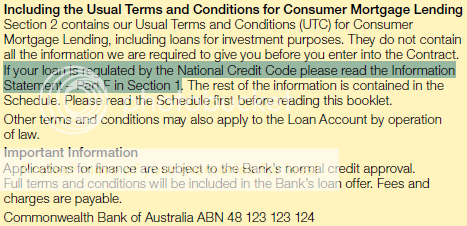What about this?
This is what you said in the very first post of this thread:
Exactly - thank you. I said that the CBA information booklet contains various T&Cs that may apply across a broad range of loans, and I asked to see an actual contract that included those T&Cs. I also asked TF to advise whether every single T&C in the booklet was present in every single loan contract, and that no other clauses (aside from those in the booklet) existed in every loan contract.
I did not, as TF falsely claims... 'argue the ING and CBA TsandCs are not contractual terms'
TF failed to provide a copy of an actual contract, and also failed to respond to the question about whether every single T&C in the booklet was present in every single loan contract (obviously because the answer is 'no'). I have personally viewed actual CBA and Westpac regulated loan contracts, and those clauses did not exist.

